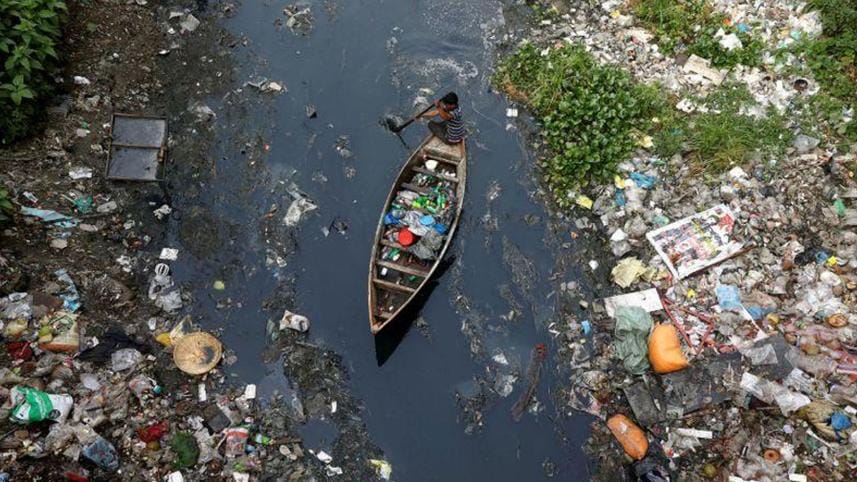Saving the future through sustainable development

We are running out of many essential resources needed to support life on this planet. Many valuable resources like Antimony, Lead and Indium used in renewable energy solutions are forecasted to run out by 2030. Many other minerals or metals we mine or extract will be on the verge of complete depletion in another decade or two. A report published in March 2021 titled "Global Trends 2040" by the US National Intelligence Council also identifies climate change and the chain events of climate change to be significant challenges for the next two decades.
Bangladesh is on a growth streak. In the past few years, we have claimed and achieved steady growth but with such fast growth comes great responsibility. The development we seek to achieve comes at a cost. Bangladesh is unique to have realised the cost of development, as we remain extremely vulnerable to climate change and its impacts. As we are also one of the most densely populated nations on the planet, we must pay attention to using the natural resources that we have so far taken for granted. 160 million residents of this nation have a responsibility, the responsibility to ensure sustainable development, which means we shall meet our own needs without compromising or ignoring the needs of future generations.
The conventional profit-driven business model has changed in many aspects in the past decades. The triple bottom line concept insists that businesses should be concerned about profit, planet and people. Sustainability should be prioritised in the environmental, economic and social fronts. That is, achieving economic growth through optimum use of resources without compromising standards on decision criteria that might put our planet and its future at risk. This means we need to consume natural resources at a sustainable rate—a rate which will allow our planet to heal itself and replenish the resources without creating a shortage. This means that businesses need to address and be considerate of our overall social wellbeing.
In 2015, the United Nations also identified a set of 17 goals that are to be met by 2030 that oversees the overall wellbeing of people, community and the planet and drives us all towards a sustainable future. As Bangladesh graduates from the LDC status, we need to engage in certain activities to acknowledge and address many of the challenges of becoming a consumer economy. There has been a strong correlation between consumption and the creation of waste, especially plastic waste. In Dhaka, the plastic footprint per person per year is above 20kg. This volume is expected to grow further as consumers have more expendable income. Nevertheless, this is only one challenge associated with growth in the arena of sustainable development.
Organisations need to step up and make changes as well. Many of the renowned global restaurant chains that operate in our neighboring countries act in a much more responsible manner when packaging their food, avoiding plastic and replacing them with wood, bamboo shoot, or paper alternatives. However, that is not how they operate in Bangladesh. Every small step counts. Businesses need to start with small steps to gradually raise awareness among people and finally create a scenario where consumers are responsible and other stakeholders, including the government, are motivated to take necessary steps to address the relevant issues.
Our people have historically not been very responsible when it comes to these issues. Consumers need to be made aware of the challenges of tomorrow and the price to be paid by our future generations. Universities, colleges and schools can play a major role in educating young people on the importance of sustainability.
Many requirements, regulations, and legislation that are in place in the European Union are not in place in our country yet. While not all of those green markers are feasible in an economy like ours, small-scale accountability mechanisms for businesses should be in place. Introducing organisations to the idea of extended producer responsibility, where businesses are held responsible for the disposal of post-consumer products or waste materials, can create new avenues—and it has proven to be quite successful in curbing plastic waste. This can gradually change the mindset among decision-makers on the business side as well.
While there is no common consensus on whether we are past the point of no return to acting responsibly to replenish the earth's resources, global climate changes and fluctuations are evidence that we are not very far either. The sooner these ideas are incorporated in the decision-making processes of consumers, businesses, and legislators, the better chances we will have to have a future worth saving.
Quazi Tafsirul Islam is Researcher, Lecturer of Strategy, Management & HR, Department of Management, School of Business & Economics, North South University.


 For all latest news, follow The Daily Star's Google News channel.
For all latest news, follow The Daily Star's Google News channel.
Comments